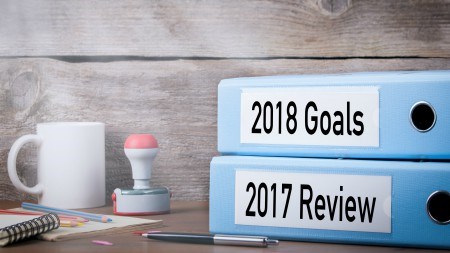92% of people don’t keep their New Year’s resolutions. Avoid becoming one of them by sticking to your plan to make homeownership in 2018 a reality.
It’s easy to get caught up in the moment and make New Year’s resolutions, but if you’re like most of us, making them is a lot easier than keeping them. Research has shown that as few of eight percent of those who make resolutions actually stick to their guns and see them through.
Property resolutions are as easy to break and although at the beginning of the year you may be determined to buy your first home, sell up and buy something bigger or purchase an investment property, as time goes on the idea gets put on the back burner and forgotten until the New Year comes around again.
Setting defined goals such as saving for a deposit for your first home or investment property is not difficult, and if you persevere and plan correctly, you will achieve your goals for 2018. The key to success is to budget.
Save for a deposit
The cost of living is rising and it has become more difficult to save. However, it’s not impossible. Saving for a deposit can seem incredibly daunting given the large sum of money involved, but having a strict budget that is religiously adhered to will help enormously.
Take a long hard look at your spending and saving habits and set yourself achievable goals. Decide how much you are going to spend on entertainment and even if it means you draw the necessary cash at the beginning of the month and keep it to one side, stick to the budget. On that note, experts suggest using a ‘bucket system’ for managing your cash flow. Use one bank account for fixed expenses such as electricity, water, rent, car payments and school fees and another for things such as entertainment and groceries. Have a completely separate, dedicated ‘house fund’ and be very strict with yourself about not dipping in to that account if you overspend in other areas.
Cutting back on eating out or ordering takeaways is going to have a positive impact on your savings, but you need to remember you only have a certain sum of money coming in, and only so much can be saved after you cover your expenses. Those who wish to save more could consider opting for additional overtime at work, trying for a higher paying promotion or even going as far as taking on a second job in order to boost their income.
Stick to your budget
Know your limits and don’t try to buy something that you can barely afford. We all have a mental picture of our perfect home, but start small - most of these dreams will be attainable eventually. It’s often a far more sensible option to start off by buying a less expensive home in a good area than it is to stretch your finances to breaking point by buying something you are going to struggle to afford - even if the bank maintains you can.
Get a foot on the ladder
If you find you can only afford a one or two bedroom home, but can’t imagine living in such a cramped environment, consider buying the home and renting it out. More often than not getting onto the property ladder is the most difficult part, but things do become easier and more affordable once you have your foot firmly fixed on that first rung. Remember too that buying an investment property is generally far easier than buying a ‘forever home’ because that is a decision made with the head, and not with the heart.
Keep your eye on the prize
Keep your sights firmly on your goal and don’t allow anything to distract you. Sacrifices will have to be made, and if it means foregoing that annual holiday with friends and family, bear in mind that the rewards of owning your own home far outweigh the benefits of instant gratification. Very little can compare with opening the door to your own home for the first time.
Watch for bargains
Keep a close watch on the market in order to spot a bargain. A cheaper property isn’t necessarily a good buy. The area in which the property is situated, the state of the home as well as the design all come into play. Chat to local estate agents, asking about average selling prices in a particular area. Keeping an eye on new listings on Private Property will give you some idea of what constitutes a bargain. Check out the legal pages in your local newspaper and start attending auctions in order to get a solid an idea of what sort of prices are realistic.
Don’t rush in
Try to think long-term before you buy. If you have young children and are looking for a family home, you need to consider what schools are in the vicinity. If you have older children approaching their teens, look at what there is for them to do. A property situated in close proximity to a shopping mall which offers a variety of entertainment options will cut down on travel time (and petrol costs) when you have to start ferrying youngsters around. Property is not a short-term investment and experts generally believe that a home should be owned for at least five years if the owner wishes to make a decent profit when he sells. Look ahead and plan your purchase carefully – don’t be rushed into buying and perhaps making an expensive mistake.




